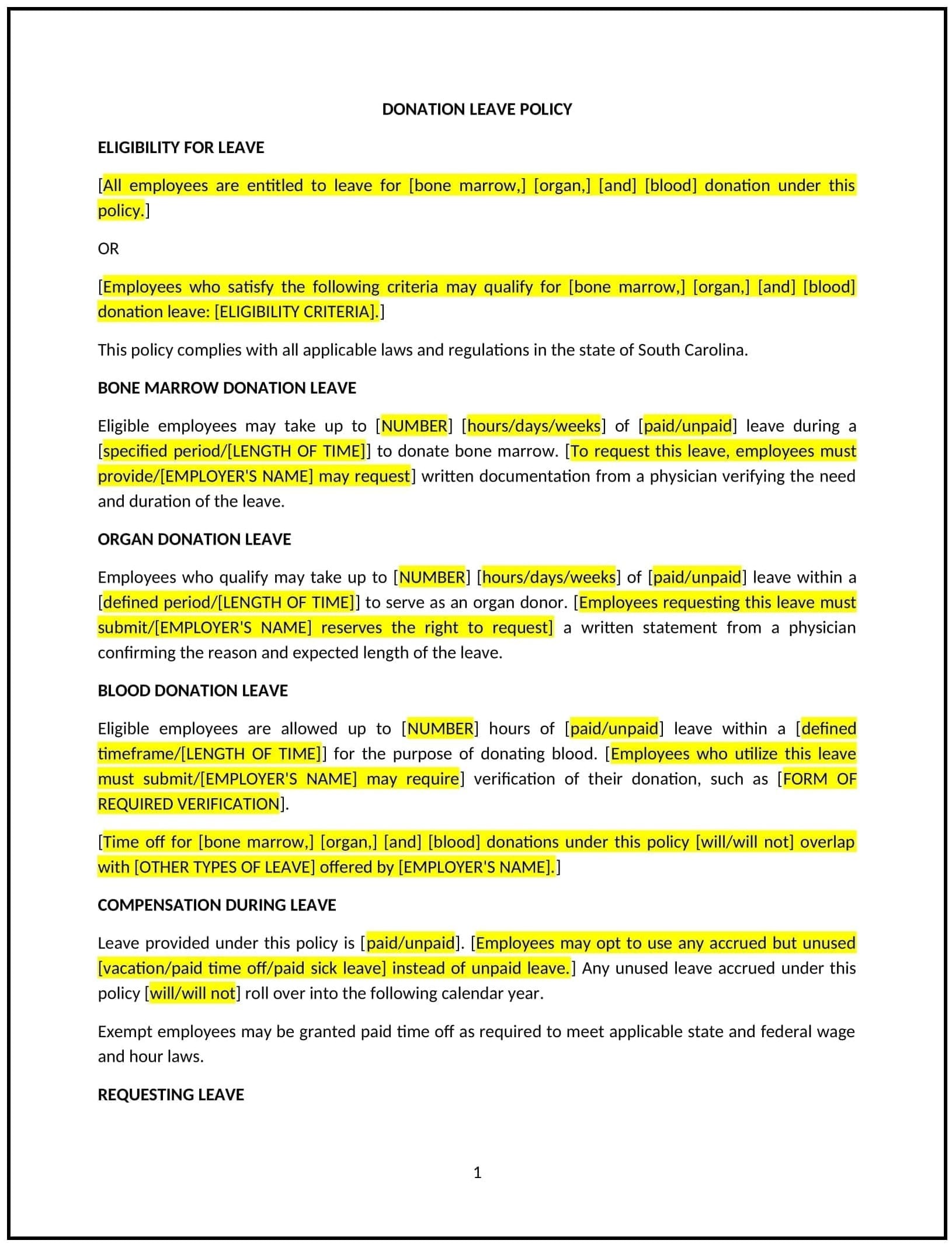Donation leave policy (South Carolina): Free template
Got contracts to review? While you're here for policies, let Cobrief make contract review effortless—start your free review now.

Customize this template for free
Donation leave policy (South Carolina)
This donation leave policy is designed to help South Carolina businesses establish guidelines for employees who wish to take time off to donate blood, organs, or other life-saving resources. It outlines procedures for requesting leave, eligibility criteria, and job protection during the donation process.
By adopting this policy, businesses can support employee well-being, contribute to community health initiatives, and align with general best practices for workplace flexibility.
How to use this donation leave policy (South Carolina)
- Define donation leave: Explain what qualifies as donation leave, such as blood donation, organ donation, or bone marrow donation.
- Establish eligibility criteria: Specify which employees are eligible for donation leave, such as full-time or part-time staff.
- Set request procedures: Provide steps for employees to request donation leave, including required notice and documentation.
- Address job protection: Guarantee that employees will return to the same or an equivalent position after taking donation leave.
- Train managers: Educate supervisors on handling donation leave requests and maintaining workflow during employee absences.
- Review and update: Assess the policy annually to ensure it aligns with evolving business needs and employee expectations.
Benefits of using this donation leave policy (South Carolina)
This policy offers several advantages for South Carolina businesses:
- Supports employee well-being: Encourages employees to contribute to life-saving initiatives without fear of losing income or job security.
- Enhances community impact: Demonstrates a commitment to supporting public health and community welfare.
- Builds employee loyalty: Shows employees that the business values their personal contributions and civic engagement.
- Aligns with best practices: Provides a structured approach to managing donation leave requests.
- Reduces turnover: Promotes a positive work environment where employees feel supported in their personal endeavors.
Tips for using this donation leave policy (South Carolina)
- Communicate the policy: Share the policy with employees and include it in the employee handbook.
- Provide training: Educate managers on handling donation leave requests and maintaining workflow during employee absences.
- Monitor adherence: Regularly review donation leave requests to ensure they are addressed promptly and fairly.
- Address issues promptly: Take corrective action if donation leave requests are mishandled or denied improperly.
- Update regularly: Assess the policy annually to ensure it aligns with evolving business needs and employee expectations.